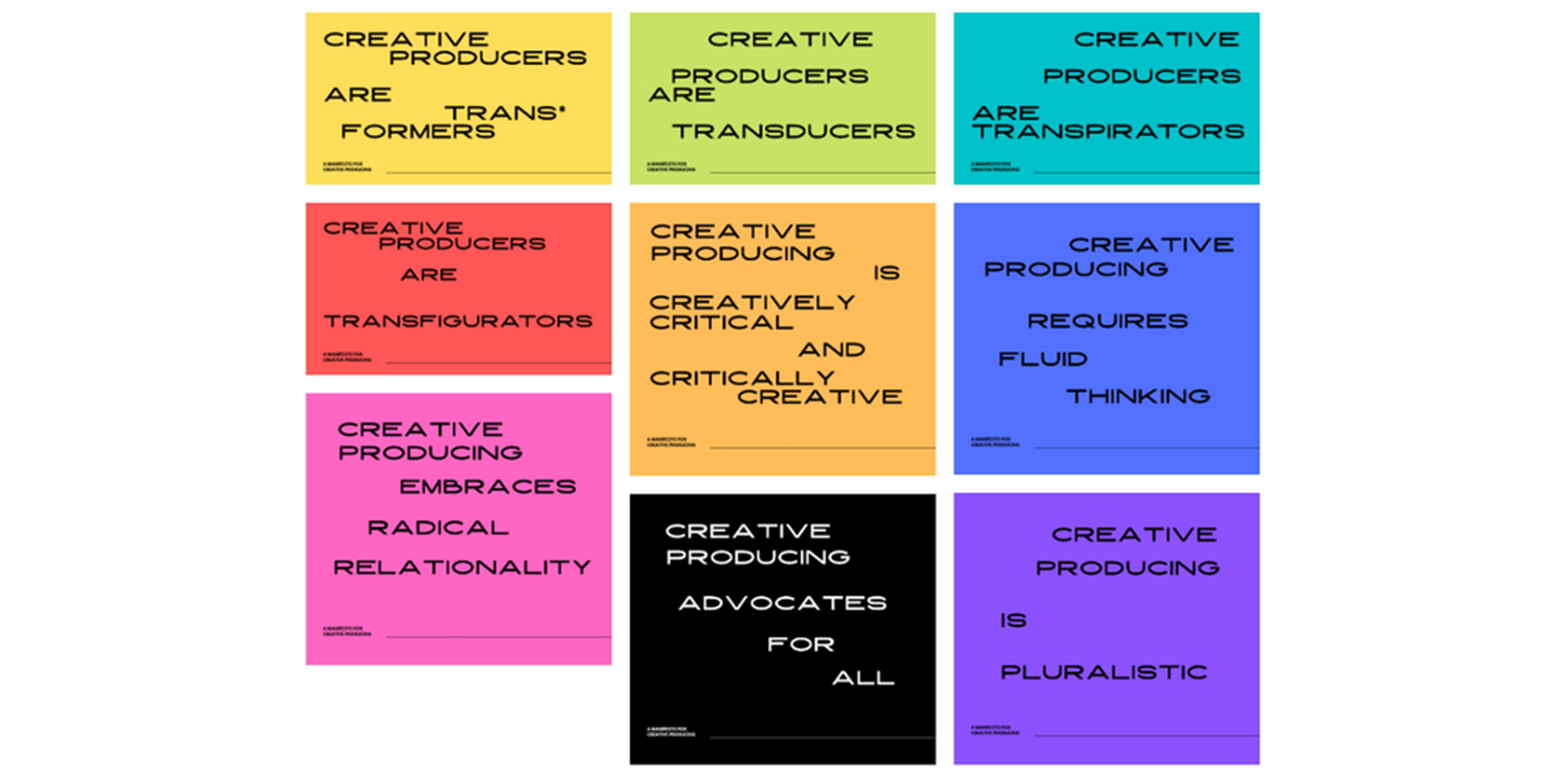Maria Kuzmina is an interdisciplinary curator, educator, artist and international lawyer admitted to practice law in New York. She engages in projects related to new media, creative entrepreneurship, sustainability and collective practices. Maria also participates at Ars Electronica as a member of an international cohort of 22 emerging and established practitioners from different sectors and cultures who collectively co-authored the Manifesto for Creative Producing.
“As interdisciplinary collaboration emerges as a vital linchpin in an increasingly interconnected world, the role of Creative Producer is coming to the fore. We appear across industries and sectors, and can broadly be identified by a common commitment to collaborative process, relationship building, and creative problem solving. For many, having self-defined and developed our practice independently, we are now looking for community and collective professional identity. 22 creative producers across 10 countries and 4 continents gathered to critically reflect on our role and its impact on the world today.”
Expanding Models of Creative Production
The workshop is divided into three parts:Creative Producers in Conversation, (Re)Framing: A Manifesto for Creative Producing, Manifesto 2.0: Critiques and Comments
The Manifesto for Creative Producing outlines creative producing as the facilitation of creative projects and innovation through the transformation of possibility into action. This workshop program welcomes creative practitioners to expand these findings through the core question: what impact does creative production have on knowledge generation and truth?
Across three sessions—engaged independently or as a series throughout the festival—participants can add their authorship to the manifesto. Festival goers are invited into dialogue with the original cohort to examine the impacts of their work, contributing their own knowledge to the Manifesto’s artistic interpretation and deepening their connection to their own practice. The workshop program aims to empower participants to question their creative practices and establish connections within a growing global network of creative producers.
The workshops are led by Nicholas Medvescek and Lizzie Crouch, with facilitation provided by the members of the initial cohort who helped draft the Manifesto.
Would you like to share a short statement of your practice with us?
Maria Kuzmina: My interests are concentrated around the issues of alternative economic models, creative entrepreneurship, policies and protocols of collaboration, organizational behavior, mediation of disputes and trust in collectives, and overall issues of labor, leisure, artistic production, and solidarity economy.
How does your project address these interests or themes?
Maria Kuzmina: The workshops and the Manifesto address these issues, mapping multiple possibilities for creative collaborative work. Among its major values, it emphasizes care, placemaking for alternative views and practices to coexist, initiating and provoking change while also tending to one’s own well-being and that of the community. Creative producers don’t merely add value to a project; they imbue values into a process. They serve as catalysts and mediators across, within, between, and beyond distinct forms. They work fluidly, embracing chaos as a site for emergent processes. They prioritize moving at the pace of care, respect, and well-being in shared spaces. They recognize and seek the potential of the hidden, unseen, and unheard to reconfigure their biases, beliefs, and values.

What does it mean for you that your project is in the workshop program?
Maria Kuzmina: Ars Electronica was a catalyst that helped us meet and work together for the first time in 2021, and this year we are meeting offline for the first time after two years of Zoom calls. Unfortunately, it is not possible to bring together the entire cohort of 22 people, but at least nine could make it to Linz, so it’s super exciting. This is also a great chance to involve more people in the project and have discussions about creative practices applied across disciplines. We held three workshops, which were attended by a fantastic audience that engaged a lot. We expect the Manifesto to grow and evolve further with their engagement and many left their contacts and want to be part of further discussions.
How is your project critically addressing art-sci-tech creation in our current social context?
Maria Kuzmina: We critically addressed questions related to creative work and creativity in general. Having worked in the creative sectors dealing with new media and technology, we aimed to refine our practices and challenge current production models that reinforce dominant perspectives. Creative labor is often undervalued, which can render our work invisible. By forming this community and exploring both convergences and divergences, we aimed to make our work visible, enabling us to drive positive cultural change and strive towards inclusive, equitable futures. Now, as we look back at the work accomplished and reevaluate it with others during our workshops at Ars Electronica in 2023, we realize that creative production as a method is applicable to domains beyond creative practices, particularly in interdisciplinary collaborations within the art, science, and society fields.
